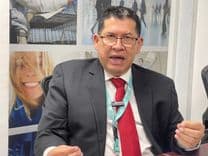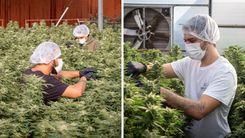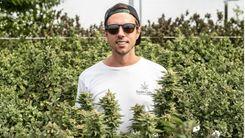Padre Pedro proposes partnership with association to expand access to medical cannabis through SUS in SC
Deputy criticizes state bureaucracy and advocates for free supply of cannabis-based medicines through SUS in Santa Catarina
Published on 08/08/2025

The parliamentarian emphasized the need for concrete action by the government to expand free access to medical cannabis through SUS, as provided for in legislation already approved by Alesc Image: Jeferson Baldo / Agência AL
The state deputy Padre Pedro Baldissera suggested to the government of Santa Catarina a partnership with the Santa Cannabis Association, based in Itapoá, in the northern part of the State, for the supply of cannabis-based medicines for medicinal purposes, aiming to reduce treatment costs.
During a visit to the association's headquarters, Padre Pedro highlighted the quality of the work being done. Santa Cannabis cultivates cannabidiol organically, using cutting-edge technology and the expertise of specialized professionals.
“It could be a great partner for the government. Just 30 ml of the imported product costs at least R$ 2,000 and lasts for a short time, making it expensive for the State,” said the deputy in a statement from the Santa Catarina State Legislative Assembly (Alesc).
Free access through SUS
The parliamentarian emphasized the need for concrete action by the government to expand free access to medical cannabis through SUS, as provided for in legislation already approved by Alesc.
“Government action is needed to enable easy access, with a medical prescription. The medication is essential for thousands of people, most of whom are not financially able,” he said.
In the last four years, over 12,000 people in Brazil have been assisted by Santa Cannabis — 5,000 in Santa Catarina alone.
Criticism of bureaucracy
Padre Pedro also criticized the state decree that establishes the State Policy for Supplying Cannabis-Based Medicines, stating that the measure bureaucratizes and hinders the population's access to treatments.
“When a citizen finds the way, after difficult consultations on the Health Department's website, they come across the requirement for the doctor to present robust scientific documentation, with the presentation of updated scientific studies, epidemiological data, contraindications, adverse reactions, and risks,” he protested.
With information from ALESC








